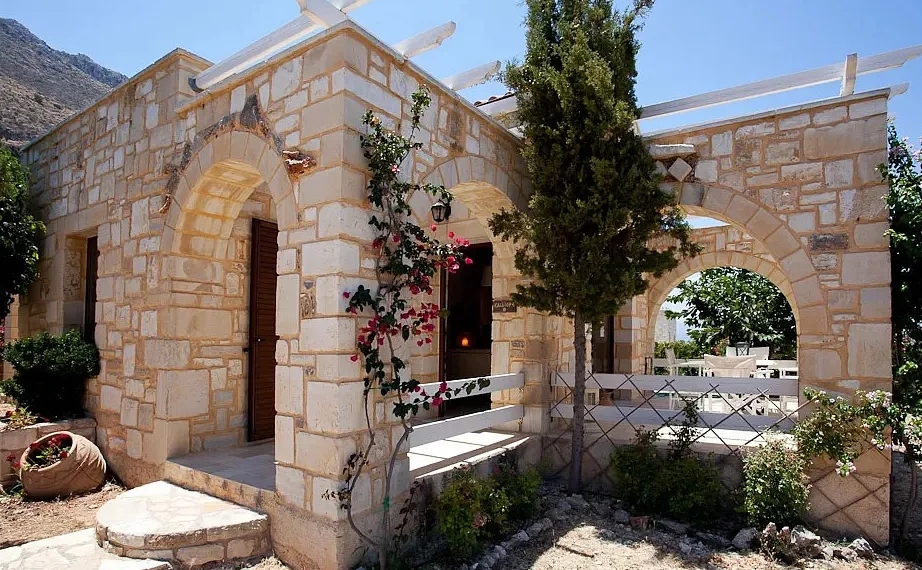Crete, the largest of the Greek islands, offers not only breathtaking landscapes and a rich cultural heritage but also an ideal setting for those looking to embrace sustainable living. With its abundant natural resources, mild climate, and a growing community of eco-conscious residents, Crete is an excellent place to live off the grid. This guide explores how to achieve sustainable living on this beautiful island, covering everything from renewable energy and organic farming to community involvement and lifestyle adjustments.
Embracing Renewable Energy
Solar Power: Crete enjoys an average of 300 sunny days per year, making solar power a highly viable energy source. Installing solar panels on your property can provide a significant portion, if not all, of your electricity needs. Photovoltaic systems can be used to power homes, heat water, and even support small-scale agriculture.
Wind Power: The island’s coastal areas and elevated terrains are ideal for harnessing wind energy. Small-scale wind turbines can supplement solar power, especially during the winter months when sunshine is less consistent. Combining solar and wind energy systems can ensure a reliable and steady supply of electricity throughout the year.
Hydro and Geothermal Energy: In some areas, small-scale hydroelectric systems can be installed if you have access to flowing water. Geothermal energy, although less common, can also be utilized for heating and cooling homes, taking advantage of the stable temperatures below the earth’s surface.
Sustainable Agriculture and Food Production
Organic Farming: Crete’s fertile soil and favorable climate support a wide range of crops, making it an excellent place for organic farming. Grow your own vegetables, fruits, and herbs without the use of synthetic fertilizers or pesticides. Organic farming practices not only produce healthier food but also preserve the soil and local ecosystem.
Permaculture: Permaculture involves designing agricultural systems that mimic natural ecosystems. Implementing permaculture principles on your land can create a self-sustaining environment that requires minimal external inputs. This approach promotes biodiversity, conserves water, and builds resilient food systems.
Livestock and Poultry: Raising chickens, goats, or sheep can provide a sustainable source of meat, eggs, and dairy products. Ensure that the livestock is raised in humane conditions with access to open space and natural food sources. Integrating livestock into your farming system can also help manage waste and enhance soil fertility.
Rainwater Harvesting: Water is a precious resource, especially in the Mediterranean climate. Install rainwater harvesting systems to collect and store rainwater for irrigation and household use. This reduces dependence on municipal water supplies and helps manage water resources sustainably.
Building and Housing
Eco-Friendly Construction: Building an eco-friendly home in Crete involves using sustainable materials and energy-efficient designs. Natural materials such as stone, wood, and earth are readily available and blend well with the island’s traditional architecture. Incorporate passive solar design principles to maximize natural light and ventilation, reducing the need for artificial heating and cooling.
Insulation and Energy Efficiency: Proper insulation is crucial for maintaining comfortable indoor temperatures and reducing energy consumption. Use natural insulating materials like wool, cork, or straw bales. Energy-efficient windows, doors, and appliances further enhance the sustainability of your home.
Off-Grid Systems: Invest in off-grid systems such as composting toilets, greywater recycling, and solar-powered appliances. These systems minimize environmental impact and reduce dependence on external utilities. Regular maintenance and monitoring ensure that these systems function efficiently.
Community and Lifestyle
Community Involvement: Join or form local eco-communities to share knowledge, resources, and support. Community gardens, cooperatives, and eco-villages provide opportunities to collaborate on sustainable projects and foster a sense of belonging.
Local Markets and Crafts: Support local farmers, artisans, and businesses by shopping at farmers’ markets and purchasing handmade goods. This promotes the local economy, reduces carbon footprint, and encourages sustainable practices within the community.
Minimalism and Conscious Consumption: Adopt a minimalist lifestyle by reducing consumption and focusing on essential needs. Prioritize quality over quantity, repair and reuse items, and avoid single-use plastics. Conscious consumption reduces waste and promotes sustainable living.
Benefits and Challenges
Benefits: Living off the grid in Crete offers numerous benefits, including a healthier lifestyle, reduced living costs, and a smaller environmental footprint. The sense of independence and self-sufficiency can be incredibly rewarding. Additionally, being closely connected to nature and the local community enhances well-being and quality of life.
Challenges: Embracing sustainable living comes with challenges such as initial setup costs, learning new skills, and adapting to a different lifestyle. However, with careful planning, persistence, and community support, these challenges can be overcome. Access to reliable resources and information is crucial for making informed decisions and achieving long-term sustainability.
Conclusion
Living off the grid in Crete is an attainable and rewarding lifestyle choice that aligns with the island’s natural beauty and cultural heritage. By harnessing renewable energy, practicing sustainable agriculture, building eco-friendly homes, and fostering community connections, you can create a self-sufficient and environmentally friendly way of life. Embrace the journey towards sustainability and enjoy the numerous benefits of living in harmony with nature on this enchanting island.


